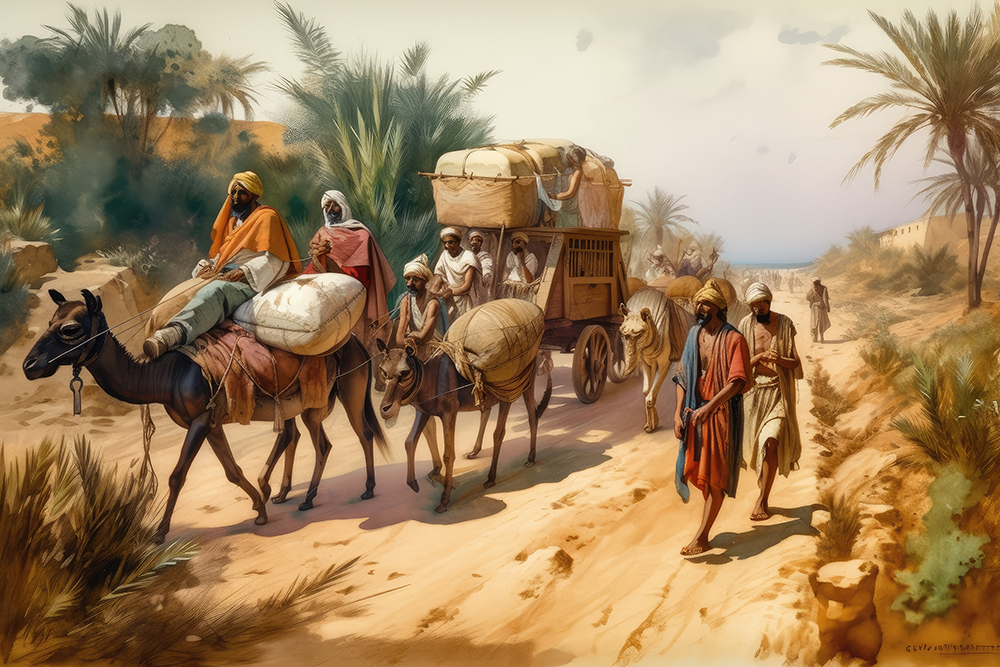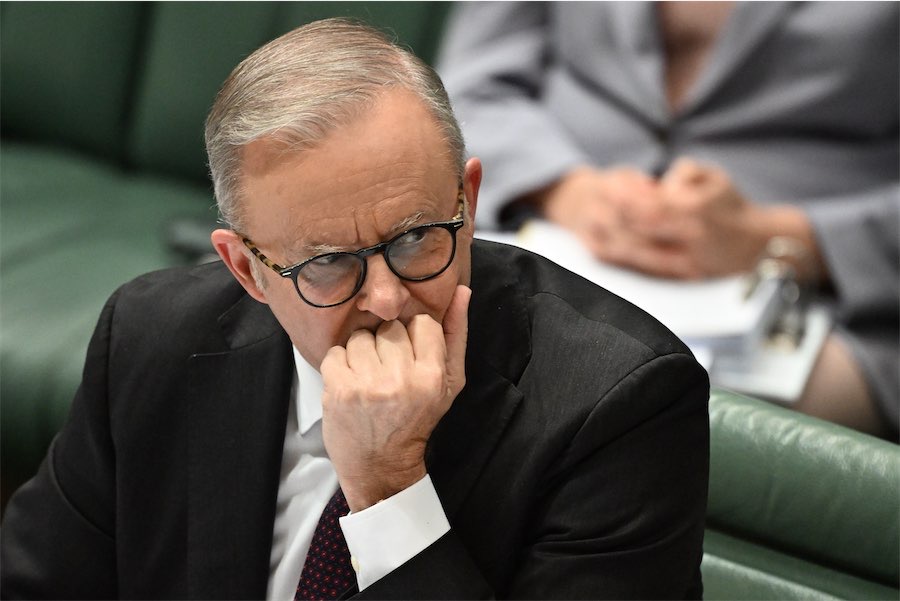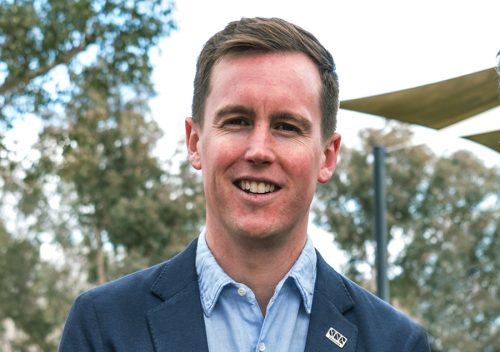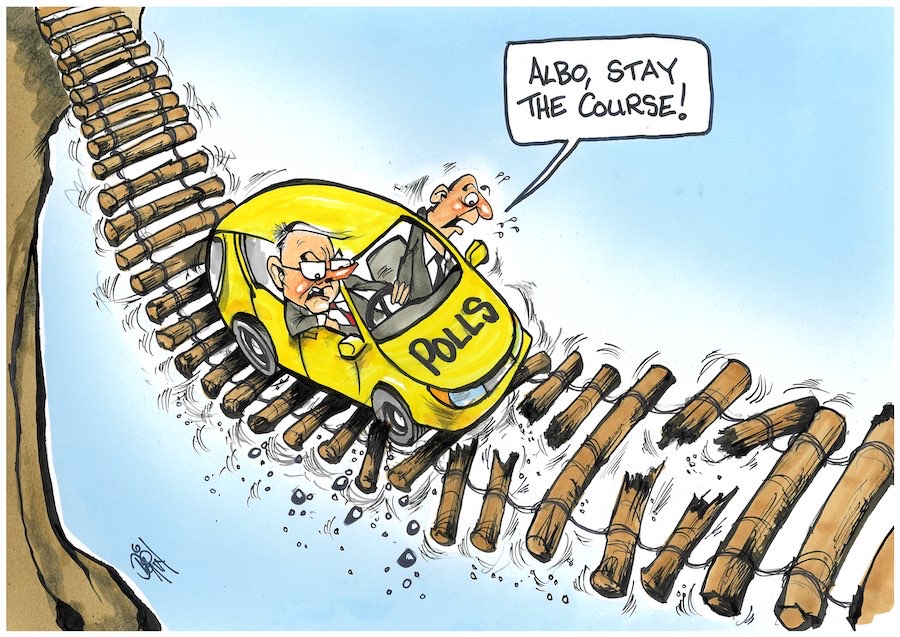
“The notions of ‘conservative’ and ‘progressive’ are nebulous… in effect, little more than pejorative labels and marketing monikers without much relevance or reference to actual policy,” write JON STANHOPE and KHALID AHMED.
A post-retirement, round-Australia trip by caravan is increasingly a dream come true for retirees.
The journey involves travel to distant and isolated places, but with all the provisions and comforts, even luxuries, of home. It epitomises freedom and autonomy in the great Australian outback.
The ancients understood caravans differently. They were groups of people travelling together with their goods for trade on not only well-trodden paths, but also to discover new markets.
A caravan provided safety against bandits and enabled pooling of resources. Often, people and families joined caravans for pilgrimage or in search of a new life and opportunities.
The caravans of old were led by people with the knowledge, experience and judgement to navigate through both known and unknown lands.
Some were recognised for the speed with which they travelled in order to get to markets quickly and safely. Those who could not keep pace were left behind. The caravan waited for no one, no doubt at the urging of merchants and traders who stood to make more money by reaching the markets before others.
Those tending to the needs and comforts of merchants – servants, jesters, singers and dancers – would have travelled with the caravan at the beck and call of their masters. Those left behind would have been easy prey for bandits, thieves and swindlers, but not a concern for the merchants. Money would no doubt have trumped compassion.
Yet, there were also caravans led by individuals with a reputation for protecting and keeping the caravan together. They stopped as often as necessary to tend to the sick and the elderly. No one was left behind. The caravan travelled only as fast as its slowest member.
The caravan became, and remains, a metaphor for a group of people engaged in a joint endeavour. In Buddhist philosophy, for example, it is a symbol of a journey from a place of desire to nirvana – a journey which, as the metaphor intimates, is best undertaken jointly.
Likewise, caravan leaders (“Sabao” in Chinese, “Meer-e-Carvan” in Persian, “Salaar” in Arabic, or “Sarthavaha” in Sanskrit) were invariably a symbol of wisdom, that is, if they kept the caravan together, but of betrayal if people were left behind on the journey. There is little sympathy, in folklore, for those serving the interests of merchants alone.
Society is like a caravan
Our societies and economies today are much like the caravans of yesteryear, striving for progress and economic growth through new technologies, innovation, and development.
Typically, individuals joined a caravan in search of profit; they were, after all, in the main, merchants. Since the search for profit drives entrepreneurship, innovation and investment, there can surely be no objection to this. But a joint endeavour is virtually impossible if the profit motive is not moderated by a commitment to some ethical principle such as all transactions being fair and informed.
Society is like a caravan. Its investments in services and infrastructure, for example in, say, health and education, have saved people from being left behind, and indeed allowed more to enjoy the fruits of life. Such investments have come from taxation of income and assets. There are, of course, examples throughout history of benevolent kings building public infrastructure and looking after the sick and the destitute. There are even early examples of the welfare state.
However, it is only in relatively recent times that large institutional frameworks for income redistribution have enabled widespread infrastructure investment and service delivery.
The scope of which has been subject to much debate between so called “conservatives” and “progressives”.
In broad terms, conservatives argue for limited public spending, low taxes and minimal regulation in the belief that this will allow individuals and businesses to innovate and flourish.
However, progressives argue for larger spending on public goods and services funded by larger taxes and more regulation to ensure more equal access to economic benefits and opportunities.
Each claim that their recipe is both “fairer” and more economically sound.
The division between so-called conservatives and progressives is, however, not pure. Conservatives recognise the need for taxation and regulation while those claiming to be progressives recognise the primacy of the market in delivering public goods, sometimes indeed addressing market failure through market mechanisms.
Notably, however, some of the more significant increases in public spending have come from conservative governments while major degradation of public services have occurred under progressive governments.
History shows just how shifting the positions are
Conservatives and progressives often differ in their views on the extent to which individuals are responsible for the circumstances in which they find themselves. They thus differ in their views on the extent and circumstances in which society has a responsibility to assist those in apparent need.
History shows just how shifting the positions are: Ford Motor Company was, for example, once considered progressive for its provision of health and housing to its employees despite its sometime violent opposition to workers’ rights to organise. Fuel subsidies, now anathema to progressives, were once considered progressive.
All in all, the notions of “conservative” and “progressive” are nebulous. They vary according to one’s perspective as well as over time.
As a result, they are, in effect, little more than pejorative labels and marketing monikers without much relevance or reference to actual policy.
Consider, for example, the switch from fossil fuels to electric vehicles. This switch is being supported by generous public subsidies to buyers in the top-income quintiles. Those on lower incomes will inevitably be stuck with old inefficient cars and hence higher costs while their taxes – they do pay taxes – subsidise cars purchased by people on much higher incomes.
Progressive think tanks claim that the policy is “progressive”. How ironic that such public subsidies are inevitably bolstering the wealth of the world’s richest man – Elon Musk.
It is no surprise then that those left behind by the decarbonisation caravan are far more likely to deny climate change. It is similarly unsurprising that they become prey for charlatans and autocrats who would have them believe that “woke” elites are the cause of their misery.
The true meaning of ‘progressive’
The recent ACT election was also framed as a contest between “progressives” and “conservatives” with Labor and the Greens proudly sporting the “progressive” label while the Liberals were forced to bear the weight and odium of “conservatives”.
This does, of course, considering the record of Labor and the Greens over the last decade raise a serious question about the true meaning of “progressive”.
Is it, for example, “progressive” to sell off public housing to fund a tram? Is it “progressive” to cut funding for public health to the point that working-class families and those unable to afford private health insurance wait up to four years for orthopaedic surgery?
Is it “progressive” to require Canberrans without appropriate housing to wait more than five years for public housing?
Is it “progressive” to have the highest rate of Aboriginal incarceration in Australia?
More generally, is a caravan travelling fast and leaving some behind more progressive than the one travelling only as fast as its slowest, or vice versa?
Jon Stanhope is a former chief minister of the ACT and Dr Khalid Ahmed a former senior ACT Treasury official.
Who can be trusted?
In a world of spin and confusion, there’s never been a more important time to support independent journalism in Canberra.
If you trust our work online and want to enforce the power of independent voices, I invite you to make a small contribution.
Every dollar of support is invested back into our journalism to help keep citynews.com.au strong and free.
Thank you,
Ian Meikle, editor






![Rasa Kabaila was the youngest personal carer at a war veterans home at age 16, reports ELIZABETH KOVACS.
“When I was 15, I did work placement in a pediatric ward and then I did another placement at a war veterans home in Canberra,” she says.
“As much as I found it interesting, I found it all quite confronting.
“I was always told by people in [the war veterans home] that they hoped I would become a nurse,” she says.
“I was the youngest carer employed there at the time and I was working in the high-care dementia wing.”
To read on about Rasa's incredible experience as a nurse, visit our website at citynews.com.au or tap the link in our bio! 👩⚕️
#nurse #nurselife #nursepractitioner #nursestories #canberranews #citynews #localstories #canberrastories #Citynews #localnews #canberra #incrediblewomen #journalism #canberracitynews #storiesthatmatter #canberralocals](https://citynews.com.au/wp-content/uploads/sb-instagram-feed-images/476555403_1166125822189636_4572425384807928365_nfull.webp)

Leave a Reply